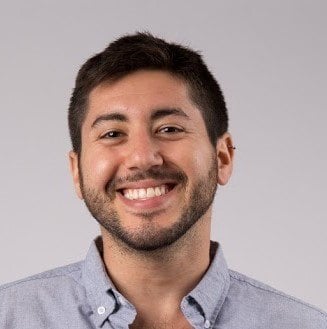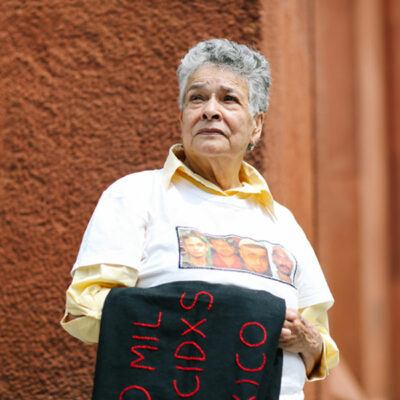
This month, Dominican Republic President Luis Abinader won his re-election campaign, making headlines around the world. But activists on the ground say much of his popularity draws from Abinader’s support of the Caribbean Island nation’s open secret: the Dominican Republic is now over 10 years into a crisis that has kept more than 100,000 Dominicans of Haitian descent stateless and without basic human rights — with no end in sight.
Thankfully, social movements are fighting every day to ensure the basic dignity of a community that activists call “walking ghosts,” people who are invisible to the state and Dominican society as a whole.
AJWS grantee Reconoci.do is at the forefront of this struggle, representing Dominicans of Haitian descent. After inflicting systematic discrimination and social abuse on Haitian migrants and Dominicans of Haitian descent for decades, the Dominican Republic stripped citizenship from hundreds of thousands of Haitian-descendant people in 2013. The following year, bowing to international outrage, the country introduced a law creating a pathway for this community to reclaim citizenship. But a decade later, about 130,000 people remain stateless, many held up in legal limbo and blocked from their basic human rights to employment, education, voting and more.
Maria Jose Yan is one of those people. And Reconoci.do will not let her fight alone.
Maria grew up in the Lahiguera batey (sugarcane plantation community) in a family of nine children. Her life has been filled with struggle — raising her siblings after her mother died; fighting for years to acquire documents allowing her to attend university; being blocked from employment because she had been denied documentation due to her Haitian ethnicity.
To help Maria and others in similar situations, Reconoci.do is training Dominicans of Haitian descent to take a different route: become business owners themselves.
In the fall of 2022, with the support of AJWS, Reconoci.do launched an in-depth course on entrepreneurship — teaching 32 Dominicans of Haitian descent how to create a business plan, contact suppliers and market a new business. Each graduate also received financial assistance to get started.

Today, 17 people have opened small businesses: a barber shop, a beauty salon, a small grocery store, a stationery store and more. Maria is one of Reconoci.do’s first generation of newly-minted entrepreneurs — and business at her second-hand clothing store is booming.
“The Maria from the past had no future — or at least I couldn’t see it,” she says. “I was lost, depressed. I had no north star. But now I do. I know what I want and where I’m going.”
When Maria completed Reconoci.do’s entrepreneurship course, she opened her own boutique.
She says proudly now: “I promise you won’t leave here without your new favorite thing.”
Amid a standstill in the legal fight to help more Dominicans of Haitian descent reclaim citizenship in the Dominican Republic, Reconoci.do insists that supporting this community to live with dignity is critical. Reconoci.do’s team consists of other Dominicans of Haitian descent; for them, the fight is personal.
“This is a fight for survival, for life itself. We are the route towards change. We are paving the road that will be followed by those who come after us,” says Elena Lora, a Reconoci.do area coordinator. “So if we fall to despair, who will carry our movement forward? Who will tell these stories? Who will help young people claim their human rights? Just as we dream together of a better future, if we fall, we fall together. And when we achieve something — anything — we achieve it together.”

In the scope of this ongoing, massive human rights crisis, helping a few dozen people achieve economic independence may seem like the tip of the iceberg. But Reconoci.do staff believe, “our work exists within an interconnected ecosystem,” says Felipe Fortines Yen, another Reconoci.do area coordinator. “We all start with the change we want to see in ourselves. And then our families, then communities, then our countries and the world. Change ripples outwards.”
Today, Maria feels reborn — and credits Reconoci.do. “Reconoci.do helps us understand that we’re not ghosts, we’re human beings. If depression, anxiety, the government and racism couldn’t hold me back, nothing can,” she says. “Women in my community are strong. We are all tigresses. We are lionesses. No one can stop us.”


